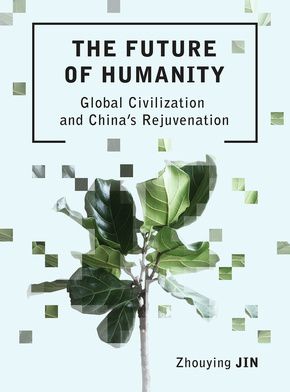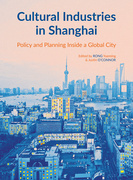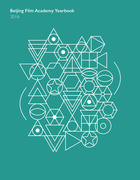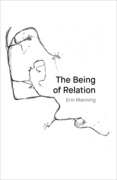The Future of Humanity (Book)
Global Civilization and China's Rejuvenation
The Future of Humanity seeks to answer the question: "What kind of global civilization should human beings pursue and what do we have to do collectively?," one a question that has preoccupied scholars, philosophers and politicians for centuries. In doing so, the book tackles concepts as monumental as the keys to happiness, alien nonconventional intelligence, immortality, morality and China's possible role in bringing about a better worldjoining this global discussion. To navigate these many and complex topics, Jin combines the spiritual insights of ancient Chinese thinkers with a deep respect for the accomplishments and discoveries of modern Western science, exploring and explaining her distinct vision for a what a better, global future civilization could be.
Edition
The Future of Humanity seeks to answer the question: “What kind of global civilization should human beings pursue and what do we have to do collectively?,” one a question that has preoccupied scholars, philosophers and politicians for centuries. In doing so, the book tackles concepts as monumental as the keys to happiness, alien nonconventional intelligence, immortality, morality and China’s possible role in bringing about a better worldjoining this global discussion.
To navigate these many and complex topics, Jin combines the spiritual insights of ancient Chinese thinkers with a deep respect for the accomplishments and discoveries of modern Western science, exploring and explaining her distinct vision for a what a better, global future civilization could be.
Zhouying Jin is a senior researcher and professor at the Institute of Quantitative-Economics and Technical-Economics of the Chinese Academy of Social Sciences (CASS), as well as director of the Centre for Technology Innovation and Strategy Studies (CTISS), also of CASS. She is chairman and founder of the Beijing Academy of Soft Technology.
Preface
Theodore Jay Gordon
Preface
Guangbi Dong
Comment
Lane Jennings
Acknowledgements
Introduction: Where Are Human Beings Headed?
About human evolution
What is technology?
On the future of civilization
The sustainable development of human beings
Understanding China
Chapter 1: Deep Concern over the Direction of Technology Development
The technological revolution now unfolding
The syndrome of technology worship
Anxiety disorder due to technology
Concerns over the direction of human evolution
Chapter 2: What is Technology?
Technology in the broad sense
Soft technology has been ignored for a long time
The significance of understanding soft technology
What determines the direction of technological innovation?
Chapter 3: The Crisis in Human Civilization Driven by the Theory of Scientific and Technological Omnipotence
The imminent disaster facing science and technology
The crisis of human civilization
The integration of hard and soft technologies in the field of human life and its risks
Human progress as the ability to control their own destiny
Chapter 4: What Kind of Civilization Should Human Beings Pursue?
Exploring the future evolution of humanity from social-humanity perspectives
What kind of civilization should human beings pursue after industrial civilization?
The global civilization – the cultural foundation for jointly building future human happiness
Chapter 5: Future Civilization and Sustainable Human Development
Redefining sustainable development
Human sustainability depends on what civilization we choose
Realizing sustainable development by adopting a systemic solution (the example of China)
Chapter 6: The Difficult Task of Creating a ‘Global Civilization’
The transformation of civilization has a long way to go
The development mode of each country can and should be unique basic principles
Beyond Global Civilization – the most worthy goal for human beings
Prospect of the Great Civilization
Chapter 7: Can Humans Eventually Create a Great Civilization?
Education and the power of persuasion
Human beings can and should agree on common values
Ideal human societies have certain characteristics in common
Human beings have never stopped striving to realize the ideal society
Chapter 8: Global Civilization and China’s Rejuvenation
Promoting green and innovative production activities (the transformation of economic development)
Protecting and Recycling Natural Resources and Economizing to Attain Reasonable Development (transforming the resource application model)
Repairing, restoring, and protecting the environment (transforming the ecological protection model)
Promoting social progress, building a harmonious society (transforming the social development model)
Population trial (transforming the population development model)
Striving to build an innovative country (from imitative innovation to independent innovation)
Institutional experiment (implementing a socialist system with Chinese characteristics)
China 2050: A splendid future lies ahead, but dangers still exist
Chapter 9: The Responsibility of Our Generation
Reaching consensus is key
Changing how we think is the precondition for achieving consensus education
A better future cannot be predicted, but it can be created tolerance and visionary thinking
Be bold to take responsibility
Transmitting the goal of realising the Great Civilisation to the next generation
'The Future of Humanity is a thought-provoking work that takes a long view of the trajectory of our technological development, identifies the significant risks and ethical dilemmas that it entails and tries to answer the central question of what kind of future we should aspire to as humanity. It is a profound piece of work, reflecting a deep understanding of technology and society, as also the philosophical traditions of both the West and the East to weave an inspiring vision for the future of humanity. The author is an accomplished futurist with long years of experience as a distinguished tech policy expert. In her analysis, she distinguishes between “soft technology” comprising, for example, societal norms and structures as opposed to “hard technology” concerning material solutions based on science. It is “soft technology” which ultimately determines the impact of “hard technology” on society, and therefore deserves serious attention. The author paints a vivid picture of what might be the successor of our current industrial civilization. She calls it the “Global Civilization”. She then goes on to define its next and more evolved version, which she terms as the “Great Civilization”. While considering technology and society, we are often constrained by our current circumstances as we think of the future. As a result, we usually end up thinking incrementally. The Future of Humanity provokes us to think more expansively on a bigger canvas. It is an extremely valuable contribution in helping us frame our thinking of the type of society we should collectively design if what we cherish as humans is to survive and thrive in the future".'




















